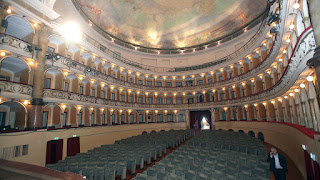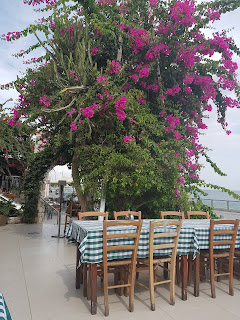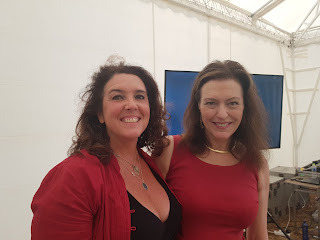After
an unpleasant academic year 2020-2021, my sanity has finally been restored this week by
my first ever visit to Padua (a solo journey I could not have contemplated even a few weeks ago). Its University, founded in 1222, is the fifth
oldest in the world. My host was the wry Rocco Coronato, Professor of English, gifted
at entitling publications (a recent article of his is ‘The Emergence of
Priapism in Two Gentlemen of Verona’).
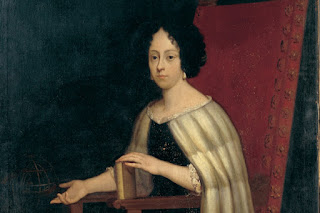 |
| Elena Cornario Piscopia in the ermine of a Doctor of Philosophy |
As
Head of the PhD programme in Linguistic, Philological and Literary Sciences,
Rocco invited me to address the doctoral students on the topic of women
classical scholars in Italy. The lecture will be available online soon. The
first woman ever to be awarded a doctorate was Elena Cornaro PIscopia as early
as 1678—her topic was Aristotle. One of the most important papyrologists of all
time was the inspirational Medea Norsa, who found and published Sappho fragment
2.Medea Norsa, Papyrologist Extraordinary
Padua
is forever engraved on a classicist’s heart as the city founded by Antenor, the
Trojan counsellor who in the Iliad sensibly advises the Trojans to give
Helen back to Menelaus immediately. But Antenor’s most famous exploit was founding
Padua (Patavium), an act described by Venus to Jupiter in some of the most
memorable lines of the Aeneid (1.242-9), when she is arguing that it is
about time the other Trojan exile, Aeneas, is allowed to settle in Italy too.
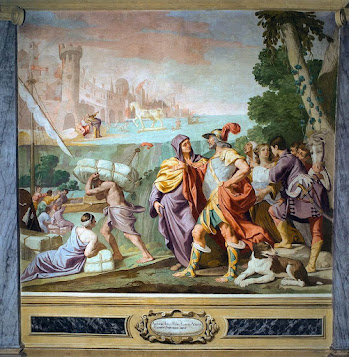 |
| Luca Ferrari, THE FLIGHT OF ANTENOR FROM TROY |
The historian Livy was himself a Paduan, who retained an accent people laughed at all his life. He even opens his History of Rome with a resounding allusion to Aeneas and Antenor arriving from Troy and the foundation of Patavium ‘in the furthest regions of the Adriatic’.
Livy has been given a monument in Antenor’s piazza, where an ancient sarcophagus said to contain Antenor’s body was discovered in the thirteenth century and an imposing edifice built to house it. Sadly, carbon investigation reveals that the bones are not old enough for a Bronze Age hero and indeed one is a female femur.
 |
| Antenor's Tomb and Livy's Monument |
Padua
is famous as the setting of much of The Taming of the Shrew, but the
show I went to see in the magnificent Teatro Verdi was Turandot. I made
a mistake: I thought it was the Puccini opera, and so I would get to hear the football fan’s
favourite aria Nessun Dorma. But it turned out to be the play, with
minimal music. It didn’t matter, even though the acting was more declamatory
than I’m used to and the plot of course preposterous.
I
went back to the hotel to play every recording of Nessun Dorma I could
find on Youtube (there are a lot; some are better than Pavarotti), while swigging Valpolicella and scoffing the local speciality, baccalà alla vicentina (cod long basted in a
milk and onion sauce, served with polenta). And I really thought seven months ago
that I had forever lost my lust for life.

